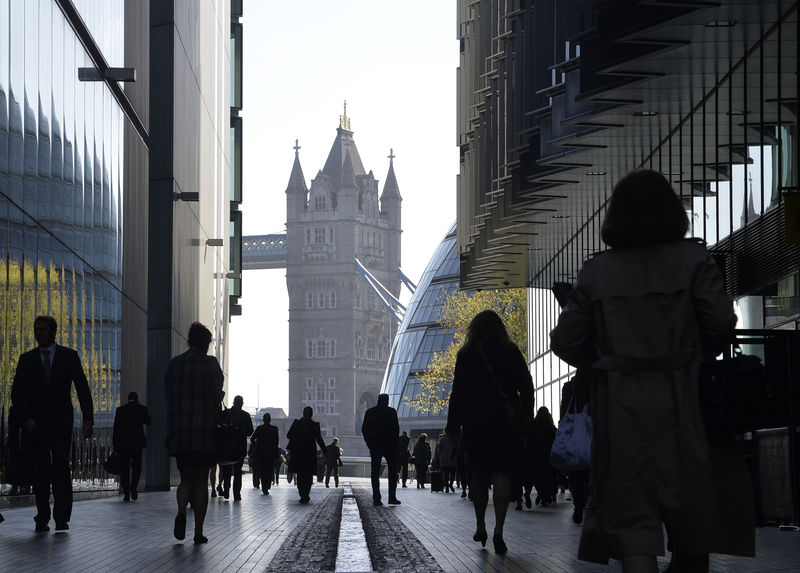Bill Gross warns on gold momentum as regional bank stocks tumble
Investing.com -- Only a small share of British companies now see U.S. trade policy as a major concern, according to the Bank of England’s (BoE) latest Decision Maker Panel survey.
Per the survey’s findings, just 12% of firms identified it as one of their top three sources of uncertainty in May, down from 22% the previous month.
U.S. President Donald Trump imposed broad tariffs on imports in April, though the U.K. secured a partial exemption in early May.
While details of the exemption are still being finalised, the majority of British firms remain unfazed. Around 70% of respondents said they did not expect the U.S. tariffs to affect their sales, pricing, or investment decisions.
Still, some businesses do anticipate a negative impact. According to the BoE survey, 22% expected lower sales over the coming year, 20% planned to scale back investment, and 15% anticipated cutting prices.
A smaller portion—7%—said they would raise prices in response to the trade changes.
The survey, which ran from May 9 to May 23 and included 2,129 firms, also highlighted easing wage pressures. Companies projected wage growth of 3.7% over the next year, the lowest since the BoE began collecting this data regularly in 2022.
Over the past 12 months, respondents reported an average wage increase of 4.8%, compared to the 5.6% rise recorded in official first-quarter figures.
Firms also expect to increase prices by 3.7% over the next year, slightly below the 3.9% forecast they gave in April.
While recent U.S. tariffs played a role in the BoE’s May rate decision, Governor Andrew Bailey has indicated that domestic wage and pricing trends are likely to be more influential in shaping future monetary policy.
